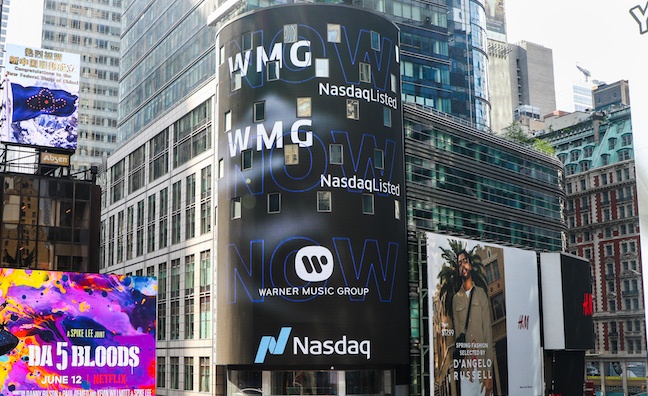‘Follow the money’ is always good advice for any music business journalist. But, these days, it’s also increasingly challenging.
Warner Music Group’s successful IPO last week showed that not even the global coronavirus pandemic can derail interest in music companies as a hot investment opportunity. But it also highlighted just what a tangled web the global music industry is right now.
WMG, of course, is owned by Len Blavatnik’s Access Industries, which also has a controlling stake in streaming company Deezer. Meanwhile, on IPO day, Music Week revealed that Chinese streaming behemoth Tencent Music Entertainment, was an anchor investor for Warner’s float, alongside its recent purchase of a 10% stake in Universal Music Group - a story now confirmed by a June 12 SEC filing. That shows that Tencent now owns four million Class A WMG shares, around a 0.8% total stake in WMG that will have cost around $100m.
Tencent and Spotify also have stakes in each other, while Universal, unlike Warner, has yet to dispose of its Spotify equity stake (Sony also retains some of its equity in the Swedish streamer). And that’s just the tip of a huge iceberg of investments and counter investments that connect rival music and technology companies.
Whether these complex arrangements matter depends upon your perspective. Spotify equity distributions aside, the artists and songwriters who want a bigger share of the money made by both music companies and streaming platforms from their art – as highlighted by the recent 'broken record' debate – get little direct benefit from such arrangements.
The battle for all music companies is to try and retain creative independence amidst corporate codependence
Music Week
To their credit, WMG and Blavatnik also launched a $100m social justice fund on the day after Black Out Tuesday, the anti-racism initiative that united the music industry and has Music Week's wholehearted support. But the #TheShowMustBePaused campaign also asks questions about what the industry gives back to the culture it profits from and, it's worth noting that the success of Warner’s IPO values the company at over $15 billion, and earns Access a windfall of around $1.9bn. The artists – or WMG itself for that matter – won’t get any of that.
Macro economics also play a part here. To many in music, a major label looks like a giant corporation. In reality, the majors are dwarfed by the tech companies that dominate global streaming. Outside investment and IPOs are one way to gain both the leverage and the financial clout needed to compete.
And that’s why more IPOs and stake deals are surely coming. The battle for all music companies is to try and retain creative independence amidst corporate codependence. Follow the money by all means, but let’s make sure music remains the leader.
* To read the inside story of WMG's first day on the stockmarket, click here. To make sure you can access Music Week wherever you are, sign up to our digital issue by clicking here.












